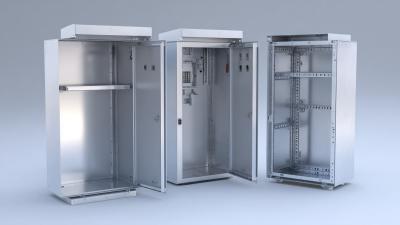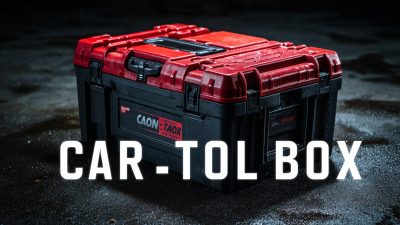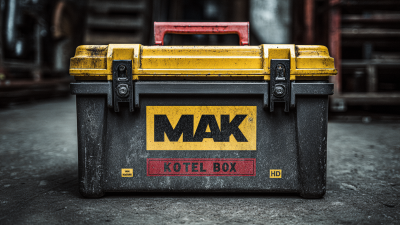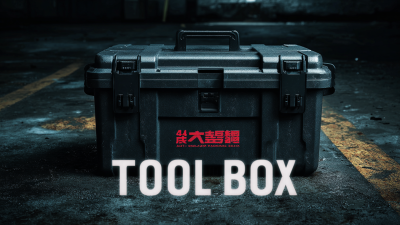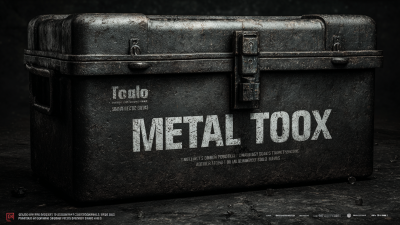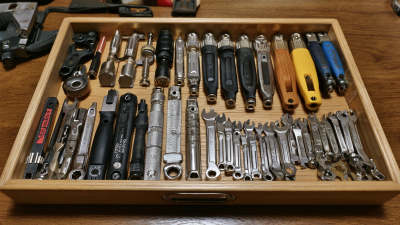In today's rapidly evolving DIY and professional landscape, the significance of selecting the right Tools Kits cannot be overstated. A recent report by the Freedonia Group highlights that the global hand tools market is expected to reach $15.2 billion by 2024, with a significant portion attributed to the increasing popularity of comprehensive tool kits among both amateur and professional users.

Tools Kits not only provide essential tools needed for specific tasks but also ensure that users have a reliable and efficient solution at their disposal. As projects become more specialized and complex, understanding the nuances of choosing the appropriate Tools Kits tailored to unique project requirements is crucial. This ultimate guide aims to navigate through the myriad of options available, helping you make informed decisions that align with your project needs while maximizing value and performance.
When selecting tool kits for your projects, it's crucial to consider several key factors that can significantly influence the outcome of your work. Firstly, understand the specific tasks you'll be undertaking; different projects require different tools.
According to a report by the Tool Association, nearly 70% of professionals highlight that having the right tools not only increases efficiency but also leads to better quality results. Evaluate whether you need a basic DIY kit or a more specialized set tailored for advanced tasks.
Tip: Always check for the quality of tools in the kit. A durable tool can last years, while low-quality options may need frequent replacement, costing more in the long run. Look for kits with a balance of essential hand tools and power tools to cover various tasks without overwhelming yourself with unnecessary options.
Another critical factor is ergonomics. Research indicates that ergonomically designed tools can reduce strain and improve comfort during extended use, which is vital for both professionals and hobbyists. For instance, choosing a tool kit that includes padded grips and lightweight materials can help minimize fatigue and enhance productivity.
Tip: Prioritize kits that come with warranties or guarantees, as this often indicates the manufacturer's confidence in the product's longevity and effectiveness.

When embarking on any project, selecting the right tool kit is crucial. The market offers a plethora of tool kits designed for various applications, from basic home repair to specialized professional tasks. According to a recent report by IBISWorld, the tools and equipment market in the U.S. is expected to grow to $18 billion by 2025, indicating a significant demand for diverse tool kits tailored to specific needs. The first step in choosing the best option is understanding the types of tool kits available.
Common categories include general-purpose kits, which are ideal for home repairs and DIY enthusiasts, and specialized kits designed for trades such as plumbing, electrical work, or automotive. For instance, an analysis by Statista reveals that 40% of consumers prefer tool kits that contain a combination of hand tools and power tools, underscoring the importance of versatility. Additionally, professionals often seek industry-specific tool kits that feature specialized tools tailored to their trade, enhancing efficiency and productivity on the job site. As the landscape of tool kits continues to evolve, staying informed about the available options ensures that you can select the most suitable toolkit for your project needs.
| Tool Kit Type | Best For | Key Features | Average Price Range |
|---|---|---|---|
| Hand Tool Kit | General Maintenance & Repair | Includes wrenches, pliers, screwdrivers | $30 - $150 |
| Power Tool Kit | Construction & Renovation | Drills, saws, and other power tools | $100 - $500 |
| Gardening Tool Kit | Landscaping & Gardening | Shovels, pruners, and gloves | $25 - $100 |
| Automotive Tool Kit | Car Maintenance & Repair | Socket sets, diagnostic tools | $50 - $300 |
| Plumbing Tool Kit | Plumbing Repairs | Pipe wrenches, plungers | $40 - $150 |
| Electrical Tool Kit | Electrical Work | Wire strippers, voltage testers | $50 - $200 |
When selecting the best tool kits for your project needs, it’s essential to analyze industry trends that highlight popular tool brands and their performance. Recently, brands like DeWalt, Milwaukee, and Makita have emerged as frontrunners, combining innovation with reliability. DeWalt's recognition for durable cordless tools makes it a favorite among professionals tackling heavy-duty tasks, while Milwaukee's focus on ergonomics and user-friendly features appeals to both tradespeople and DIY enthusiasts. Their robust warranties further enhance consumer trust, proving these brands are not just about hype but deliver real value.
Another significant trend in the tools industry is the growing interest in sustainable and eco-friendly options. Brands such as Bosch are leading the charge by incorporating energy-efficient technologies into their products. This shift not only caters to environmentally conscious consumers but also reflects a broader industry movement towards sustainability. As businesses and individual users increasingly prioritize greener solutions, these brands are setting new performance benchmarks while appealing to a conscientious market. This trend reveals a clear direction for future tool kit selections, where efficiency and eco-friendliness will play pivotal roles in consumer choices.
When selecting tool kits for any project, balancing cost versus quality is essential. According to a report by the Tool Manufacturers Association, approximately 45% of DIY enthusiasts prioritize affordable options, often compromising on quality, which can lead to subpar project outcomes. This highlights the importance of understanding the long-term value of investing in higher-quality tools. While premium tool kits may come with a steeper price tag, they often offer enhanced durability and performance, ultimately saving time and resources in the long run.
Moreover, data from the National Association of Home Builders indicates that 70% of professionals prefer to invest in quality tools that provide features catering to specific project needs, rather than opting for a broader range of less effective tools. For instance, a well-crafted drill set with adjustable torque settings can make a significant difference in efficiency and results. Therefore, assessing the right balance between budget constraints and the required tool features not only ensures project success but also reinforces the importance of making informed investment choices in tools that will withstand the test of time.
This chart illustrates the cost and quality ratings of various types of tool kits to help you make informed choices based on your project needs.
When it comes to selecting the best tool kits for your project needs, user reviews and ratings play a pivotal role in shaping your decision. They offer firsthand insight into the performance and quality of the tools, revealing strengths and weaknesses that product specifications often overlook. Many consumers share their experiences, detailing how a specific tool performed in real-world applications, which can help you identify the most reliable options for your needs.

Moreover, user feedback often highlights the value of customer service and warranty support for different brands. An overwhelmingly positive review might not just praise the tools but also emphasize the manufacturer's responsiveness to queries and issues. This kind of information goes a long way in building trust, as you want to invest in tool kits from brands that stand behind their products. By taking the time to read through reviews and ratings, you can make well-informed decisions that align with your specific project objectives and preferences.
